Climate warnings spur innovation for Trinidad and Tobago's green economy
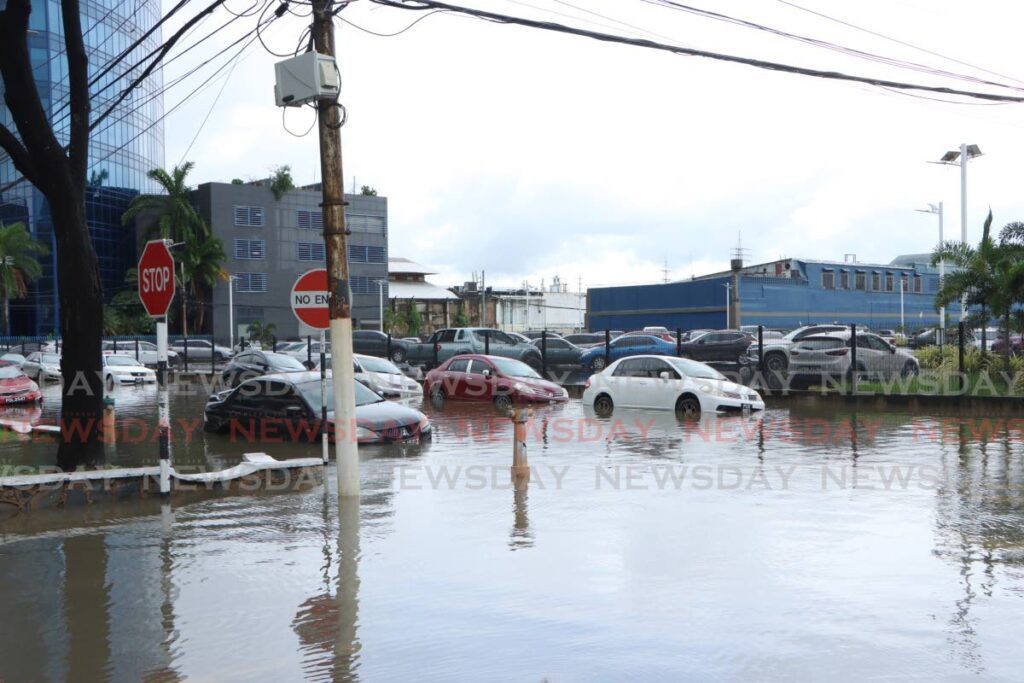
INDEPENDENT senator Anthony Vieira’s stark warning to legislators and the general public of an environmental “triple-whammy” hung in the air on day one of the Green Infrastructure Conference, hosted by the IAM Movement and the National Gas Company.
Speaking at the Arthur Lok Jack School of Business on January 23, Vieira cautioned that climate change, land degradation and biodiversity loss were real and pressing threats.
He warned that vulnerable and wealthy communities alike risked becoming uninhabitable within a few decades.
Drawing on the tragic figure of Cassandra from Greek mythology, Vieira likened today’s scientists to the prophetess, doomed to see the future, but ignored by those who should heed her warnings.
“There’s a paradox,” he said. “While on the one hand, there is no denying that natural disasters are becoming more frequent and intense, on the other hand, when scientists warn about climate change, their warnings are being downplayed or ignored.
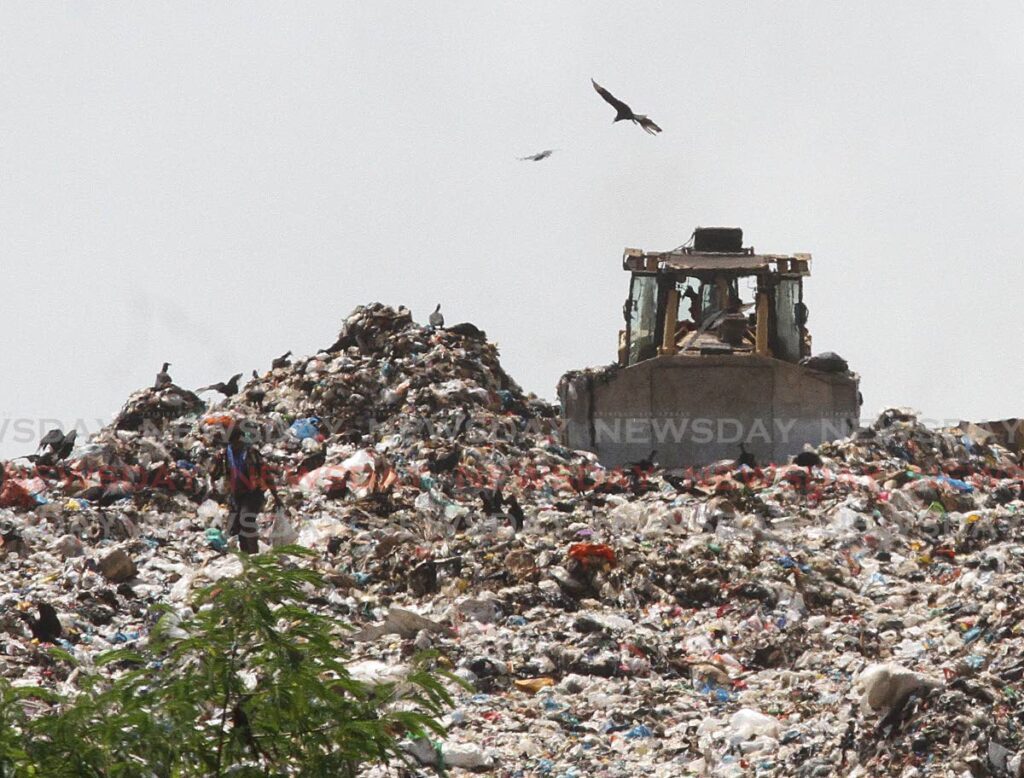
“The widespread failure to acknowledge the seriousness and urgency of the situation has turned our scientists and environmentalists into modern-day Cassandras.”
Vieira suggested there was a growing tendency by some governments and lobbyists to dismiss environmental warnings.
“Worse, the triple-whammy crisis remains a low priority for politicians.”
Vieira’s comments came in the wake of controversial actions by US President Donald Trump, whose swift executive orders have reversed emissions rules for oil and gas companies and reopened federal land for coal leasing – decisions critics argued could undermine global sustainability efforts.
As vice president of the ParlAmericas Network on Climate Change, Vieira pointed to rising global temperatures, driven by deforestation and industrialisation, as the primary cause behind the increasing frequency of hurricanes, droughts, wildfires and other disasters plaguing the planet.
He warned Port of Spain and other coastal areas could face catastrophic flooding within the next 25 years.
“A couple of inches of rainfall, and Port of Spain floods,” he said, adding that sites like the Waterfront Complex, MovieTowne and Westmoorings could be submerged in a scenario where sea levels rise by three-seven feet.
Globally, Vieira predicted that cities such as New York, Miami, London, Jakarta and New Delhi could face similar fates.
Despite these dire warnings, he offered a glimmer of hope.
“I believe TT is better off than many other places.”
However, he stressed avoiding disaster would require bold leadership and collaboration across government, the private sector, NGOs and civil society.
“The window is narrower – but it’s open.”
One of the key steps in ensuring the country’s resilience, Vieira argued, is an overdue overhaul of the 60-year-old land use plan, which governs zoning regulations and land-use stipulations.
Calling it outdated and out of sync with current challenges, he advocated for a strategy that integrates climate, agricultural and conservation goals.
“Nature-based solutions, like the Northern Range project, propagating and protecting our mangroves and wetlands, creating artificial reefs and designating marine protected areas, are a good start.”
Vieira also called for a shift towards regenerative agriculture and sustainable fishing to safeguard ecosystems and preserve soil health, which he described as a “precious resource.”
Vieira offered suggestions: a rapid transition to renewable energy, including incentives for solar-power adoption and amendments to the T&TEC Act, alongside waste reduction through recycling and composting.
He also stressed the importance of adhering to the Sendai Framework for Disaster Risk Reduction, a global agreement adopted by the UN to reduce disaster risks and build resilience. The framework focuses on understanding risk, strengthening governance, investing in risk reduction and enhancing preparedness with a "build back better" approach after disasters.
Vieira said the government must invest in climate-resilient infrastructure and community education to prepare for the challenges ahead.
He called for updates to the Environmental Management Act, urging it should be streamlined to unlock the Green Fund and ensure it is used for its intended purpose: financing biodiversity conservation and land restoration.
“We must halt deforestation, illegal quarrying and squatting in sensitive areas.
"Instead, let’s promote biodiversity conservation and ecosystem restoration by planting trees, restoring natural habitats and protecting wetlands, forests and coral reefs,” he said, adding that sustainable land management and biodiversity conservation should be national priorities.
Vieira argued that the government’s focus should not solely be on GDP growth, but also on achieving biodiversity net gains.
“Senior economists and researchers are predicting that climate-friendly green policy initiatives may offer the best economic return for government spending. Our future is bound to the health of our environment.”
Vieira warned that delays in acting on climate change could make mitigation efforts obsolete.
He outlined a vision for a greener and more resilient future, proposing a rapid-rail mass-transit system from Sangre Grande to Chaguaramas and from San Juan to Point Fortin, powered by renewable energy.
He also suggested relocating vulnerable coastal communities as a long-term adaptation strategy.
“The actions we take over the next decade – or the lack thereof – will determine the trajectory of this country’s future,” he cautioned.
The Green Infrastructure Conference, which closed on January 24, gathered policymakers, academics, entrepreneurs and environmental advocates, all exploring strategies to promote green energy and tackle climate change.
One of the conference’s standout sessions included a presentation by entrepreneur Aaron Barcant, whose company has successfully transformed agricultural waste into valuable resources. Barcant explained how he repurposed rice straw – a byproduct often discarded by farmers – into a foundation for cultivating oyster mushrooms.
“We collected 3,000 bales of straw – 75 tonnes of organic matter – in just seven days,” he explained.
The straw is used in a climate-controlled, pesticide-free facility to grow mushrooms, which are harvested and sold under the Happy Planet brand. Once the mushrooms are harvested, the remaining straw is processed into high-quality organic fertiliser at Barcant’s Microbes Alive composting facility.
Last year, Microbes Alive diverted over 71 tonnes of organic waste from landfills.
“We shredded compostable packaging collected during community clean-ups and integrated it into our recipes,” Barcant said, explaining how his company’s work significantly reduces waste and benefits ecosystems.
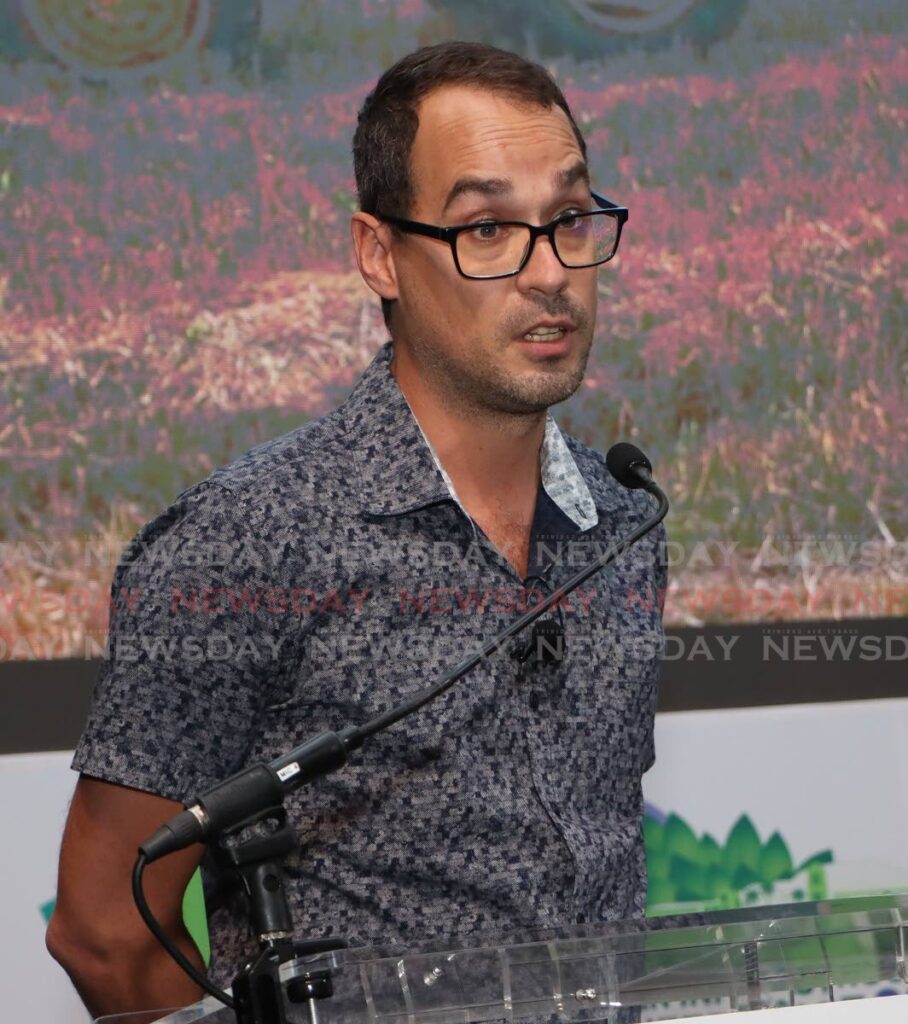
The composting facility is a separate project from the mushroom farm, but is closely linked through a shared goal of sustainable waste-management. The initiatives also support reforestation projects and quarry rehabilitation.
Barcant also discussed the company’s use of processes which remove harmful pathogens and enrich soil ecosystems with beneficial microbes.
“We use thermophilic composting processes with set recipes and algorithms to ensure safe pasteurisation and high-quality material, removing harmful pathogens.
“Our laboratory then benchmarks the beneficial populations in the soil ecosystem.
“For instance, we’ve used our compost in quarry-rehabilitation projects, pumping microbes back into degraded soils to sustain large-scale reforestation without synthetic fertilisers or pesticides.”
Barcant stressed that as global economies shift, small island developing states like TT must localise their supply chains to stabilise food systems before the crunch comes.
“The simple reality is that as global economies shift, and as certain world leaders throw around tariffs like toys, we can no longer plan for a stable global operating environment. We must localise our supply chains now to stabilise our food systems before the crunch comes.”
Barcant’s vision extends beyond agriculture.
“Concrete, for example, is invaluable to our society, but it’s one of the largest carbon-requiring processes. We’re working on reducing concrete usage by up to 75 per cent in foundation technologies while achieving economic returns through innovation.”
Barcant added that networking and collaboration are crucial to engaging stakeholders.
“The challenge is to bring stakeholders together to realise economic, social, and environmental values. These factors cannot be separated. By integrating them, we can create systems that are not only sustainable but transformative.”
David Quesnel of Vetiver TT Ecological Engineering Solutions Ltd also presented on nature-based solutions for infrastructure.

Specialising in the use of vetiver grass – a plant with deep, fibrous roots – Quesnel explained its applications in issues such as soil erosion, slope stabilisation and water conservation.
“The vetiver system is a cost-effective green infrastructure tool with dynamic applications,” Quesnel said.
One of Vetiver TT’s landmark projects involved addressing severe coastal erosion at IAL Engineering Services Ltd’s Guapo facility.
“We combined 3,150 tonnes of rock armouring with 17,260 vetiver plants over 215 metres of coastline,” Quesnel said, adding that the project stabilised the slope and protected the shoreline.
Quesnel also shared details of a project with bpTT, in which vetiver grass was planted to prevent land slippage along the Ocelot right of way.
“Engineers initially explored costly micro-piling solutions, but our green alternative – valued at $839,050 – was both sustainable and cost-effective,” he said.
The project used 23,830 vetiver plants, coconut matting, and natural check dams to stabilise the land.
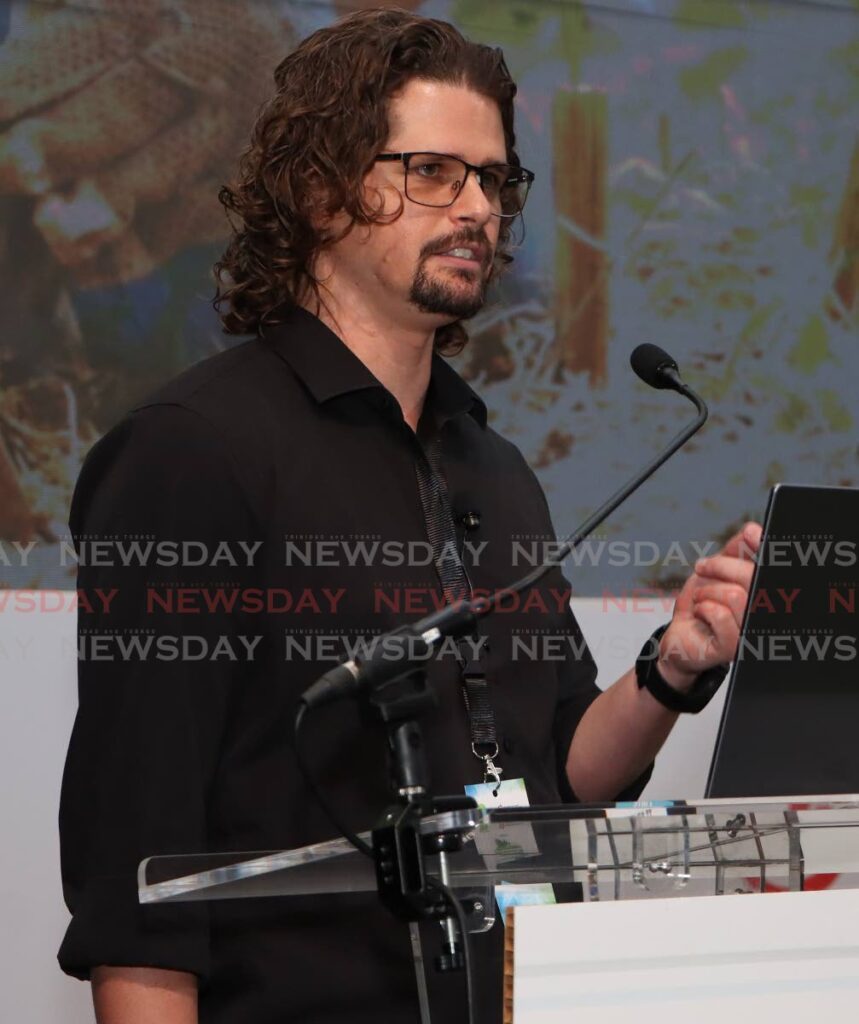
Vetiver TT collaborates with Close the Loop Caribbean and SWMCOL to treat toxic leachate at the Forres Park Landfill.
“The vetiver root system absorbs and breaks down high levels of nutrients, offering a low-cost alternative to industrial waste processing.”
Quesnel added that the pilot project had sparked interest from other stakeholders, and he highlighted the system’s ecological and engineering potential as a valuable tool for sustainable development.
Kishan Kumarsingh, head of multilateral agreements at the Ministry of Planning and Development, brought the discussion full circle by addressing the role of carbon credits in financing green initiatives.
“Carbon credits are a crucial source of innovative financing for climate projects,” he explained, describing how these credits – generated through reforestation and carbon capture projects – can be traded under the Paris Agreement’s global market mechanism.
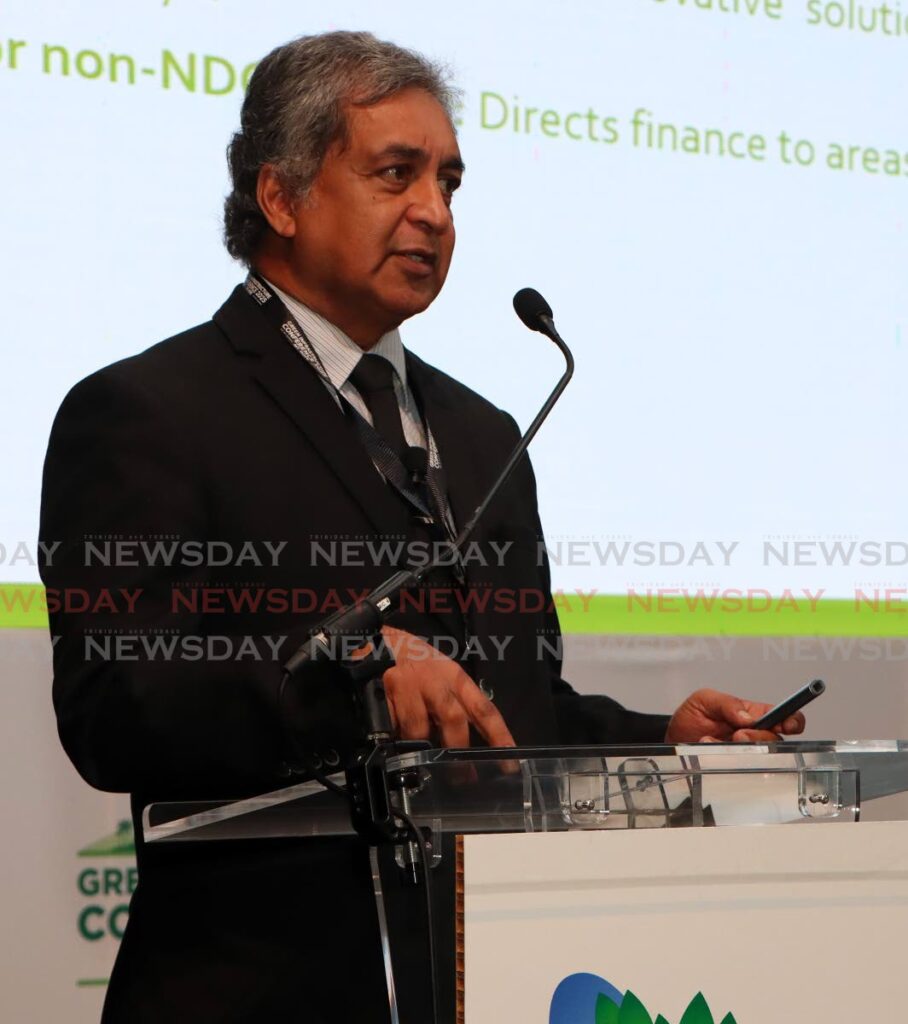
Kumarsingh highlighted the voluntary carbon market as an opportunity to mobilise private finance and exceed national emission reduction targets.
However, he also warned of challenges such as double counting and false accounting, which could undermine market credibility.
“Transparency and governance are essential to ensure the integrity of carbon credits,” Kumarsingh said, calling for harmonised frameworks that align voluntary markets with international standards.
He also discussed the private sector’s growing role in sustainability, noting that many companies are setting net-zero targets in response to consumer demand.
“The voluntary carbon market should complement the intergovernmental mechanisms of Article Six (of the Paris Agreement to reduce emissions and meet their climate targets),” Kumarsingh said.
Kumarsingh stressed the urgency of climate action. “At 1.5 degrees of warming, 70-90 per cent of coral reefs will disappear. At two degrees, virtually all will be gone,” he warned.
“Through education, collaboration and innovation, we can build a carbon market that not only protects the planet but also uplifts communities.”

Comments
"Climate warnings spur innovation for Trinidad and Tobago’s green economy"